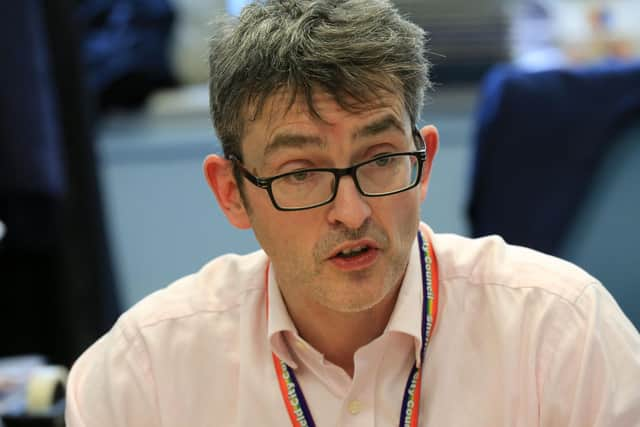Health chief reveals what EVERYONE in Sheffield should do now as Covid-19 cases soar
and live on Freeview channel 276
If you have symptoms of COVID-19, however mild, you should self-isolate for at least ten days from when your symptoms started.
Those that have tested positive for COVID-19 but are not experiencing symptoms must self-isolate for at least ten days, starting from the day the test was taken.
What are the rules around self-isolating?


Advertisement
Hide AdAdvertisement
Hide AdIf isolating, you should stay away from GP surgeries, pharmacies and hospitals. Stay at home and avoid going to work, school and public areas as well as the use of public transport and taxis. If you develop symptoms during the isolation period, restart your 10-day isolation from the day you developed symptoms. Do not go shopping for essentials or have visitors in your home. Other members of your household must stay at home and not leave the house for 14 days.
Police now have the power to give out fines up to £10,000 for those disobeying the self-isolation rules – starting at £1,000 for first-time offences.
People on low incomes who cannot work whilst self-isolating will be able to get a £500 payment to cover loss of income.
Greg Fell, Director of Public Health in Sheffield: “Self-isolation definitely is the single most important thing you can do to help stop the spread other than getting a test if you are symptomatic and thank you to those who are self-isolating because you are definitely helping protect loved one's and our communities.
“It's a really critical part of the strategy.”
Advertisement
Hide AdAdvertisement
Hide AdHe also recommended that everyone in Sheffield must think ahead and have a plan in case you have to self isolate, which could include talking to family and employers to see how they can help.
He added: “Think about how you will get access to food and water, supplies like medicines that you might need during the period, friends or family might be able to drop something off or ordering supplies online, but anything that is left make sure is left outside your home for you to collect do not invite anybody into your home.
“Think about things you might be able to do with your time, it's a long time to be at home, and there are maybe things you want to do. So plan out full days of isolation many people have found that helpful, use the calendar, what are the things that I can do that I've always wanted to do, now you have got ten days where pretty much you can't do anything else.
“Exercise remains good for you, that may be easier for some, more difficult for others but if you can take light exercise and you are able to please do so because it remains good for us.
Advertisement
Hide AdAdvertisement
Hide Ad“Lastly, while it is a pain, no doubts about that, whilst there are things that we can do to plan to ease that time, it truly is the most important thing that we can all do to protect our loved ones from an illness that is not a trivial illness for some. So even if your symptoms are mild it really really really is important because it is the thing that we can do to reduce the spread of the virus.”
For more information, visit the government website.